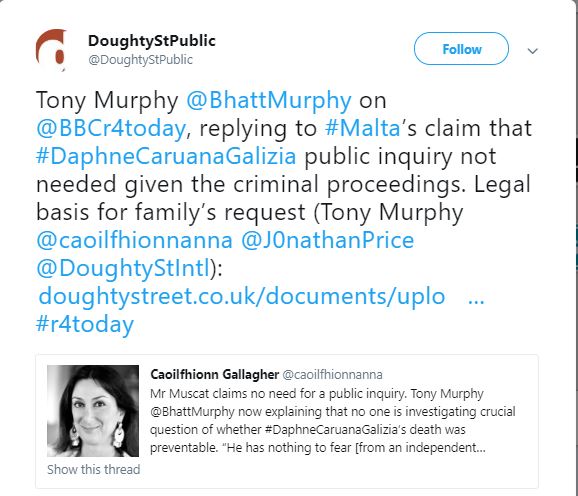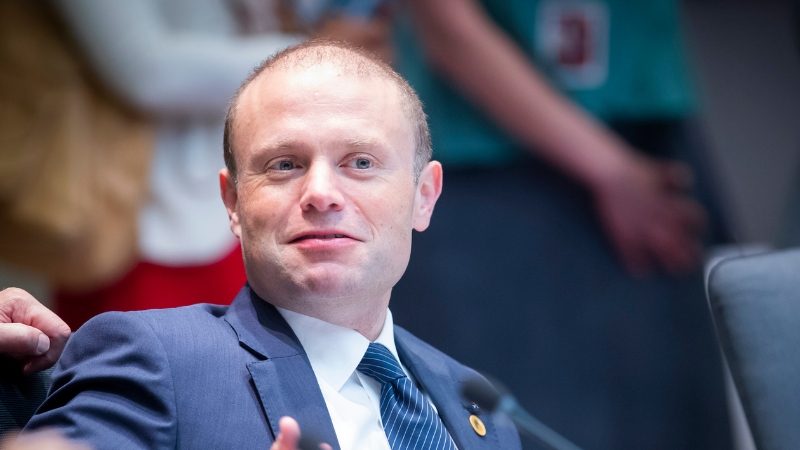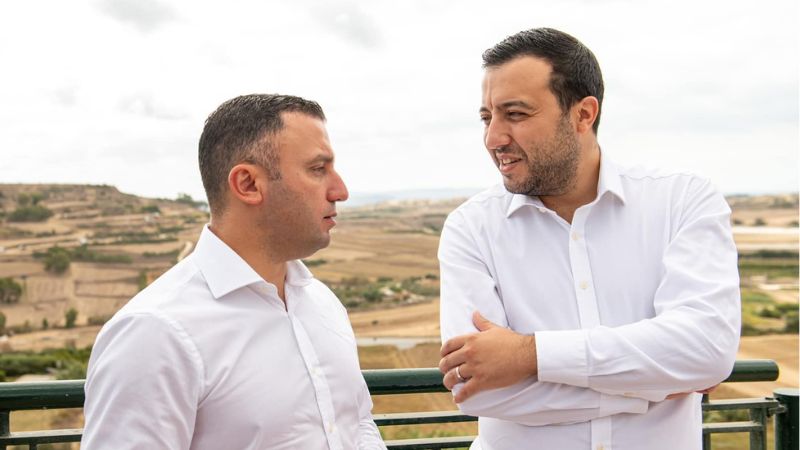Prime Minister Joseph Muscat said there was no need for a separate public inquiry into the assassination of journalist Daphne Caruana Galizia, in comments to BBC Four.
Muscat spoke out for the first time about the public inquiry, which had been requested by the Caruana Galizia family, and said he was not convinced about its effectiveness.
“I would also think that investigators need to be given the space to investigate and I’m not too sure that a second public inquiry – whatever that means – can lead to a better result or not,” he told BBC Four.
It is unclear what Muscat means by a “second public inquiry” since such an inquiry would be different to the ongoing magisterial inquiry, which has a narrower remit.
The only official reaction to the family’s request to a public inquiry had so far been limited to the Attorney General’s “interim reaction” sent to the Maltese High Commission in London on 9 August.
In comments to the BBC, Muscat pointed out that three people were facing criminal procedures for Caruana Galizia’s death. “This is almost unprecedented when it comes to such a horrific murder in many countries where the assassination of a journalist goes unpunished.”
In reply, family lawyer Tony Murphy of Bhatt Murphy, who are representing the Caruana Galizia family, said Muscat evaded a crucial question, which is “who is investigating whether Daphne’s death could have been avoided including whether there was state complicity”.

Murphy said the Prime Minister missed the point. “The criminal proceedings are investigating a much narrower issue as which is who detonated the bomb, and the magistrate is investigating whether others should be charged with criminal offences for commissioning that heinous crime”.
However, neither process was investigating the wider and much more serious question as to whether the Maltese State was responsible for Daphne’s death “either by failing to protect her from others or as a result of state collusion, which cannot be ruled out”.
That was the main reason why an urgent public inquiry was so necessary “to begin examining evidence of any such state involvement,” Murphy added.
The public inquiry the family was calling for would be a judicial one, headed by a senior member of the judiciary and perhaps by international members. Deferring it would obviously case any “evidential trail about any State failings to obviously run cold”.
The European Convention of Human Rights calls for a prompt investigation and “12 months is hardly that,” Murphy said.
They will be addressing the Council of Europe next week on the issue of the public inquiry into Caruana Galizia’s death and Murphy pointed out that there was local and international concern at the Prime Minister’s attempts to block the inquiry.
“We would say that he has nothing to fear from this public inquiry but the truth,” Murphy said.












